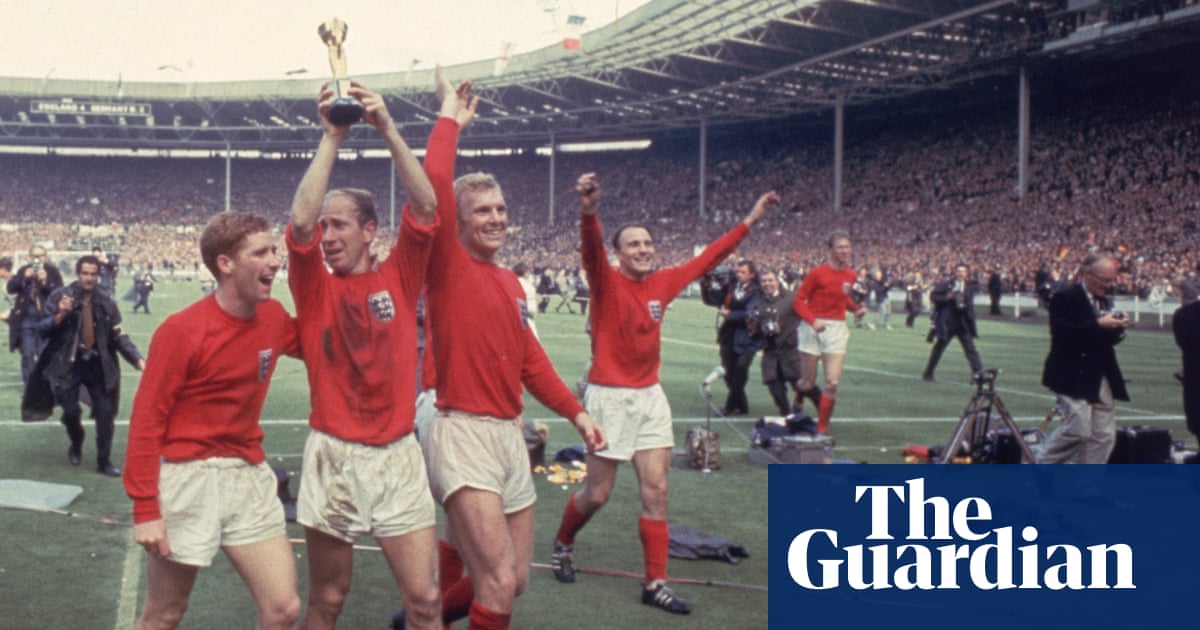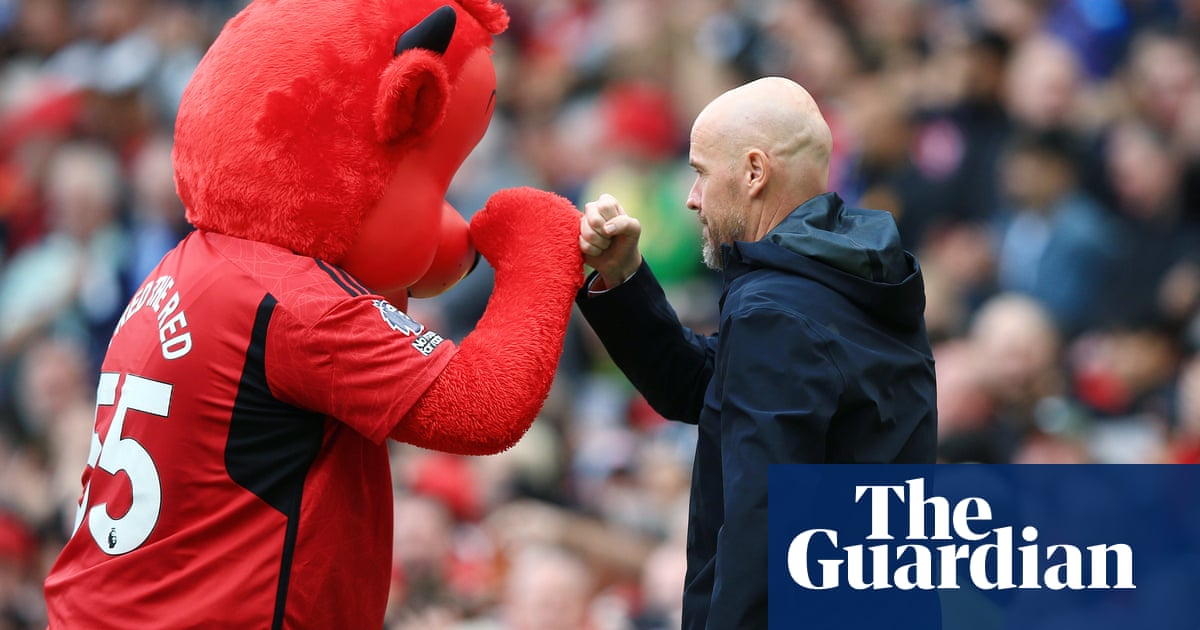
Harry Gregg, the former Manchester United and Northern Ireland goalkeeper who has died aged 87, was among the survivors of the Munich air disaster of 1958 which killed eight of his teammates; that a number of the others lived was in no small part due to the heroism he displayed that fateful day.
On the afternoon of February 6 1958, the BEA airliner carrying the United team back from their European Cup tie with Red Star Belgrade in Yugoslavia stopped at Munich Riem airport to refuel. Aboard were 43 people, among them a dozen reporters as well as the players and staff of the club.
”The Busby Babes”, as the youthful team was known after manager Matt Busby, were acknowledged to be on the cusp of greatness and had won the league title in the previous two seasons. Gregg, however, was a recent addition to the squad, having only signed two months before, and as yet he had made his mark more in the team’s card school than between the posts, where he was still vying for selection with Ray Wood.
The runway was covered with snow, and the aircraft had already made two aborted attempts to take off when the pilot was given clearance to try again. With many of the passengers in an agitated state, the aeroplane surged to the correct velocity for lift-off, then began to lose speed abruptly. It ploughed through a fence and struck a house and then a hut, inside which was a fuel bowser, which ignited. The tail and a wing were torn off, and flames began to seek out the fuel leaking from the tanks.
It was in this scene of devastation that Gregg came to, having been momentarily knocked unconscious by the impact. It was so dark, the Ulsterman said later, that he assumed he had arrived in hell. Then he regained his senses and crawled out of a rent in the side of the aircraft. The first thing he saw was the body of the first team coach. At that instant the pilot appeared and shouted at him to run, as the aeroplane might explode at any time.
But Gregg had heard the sound of a young girl crying, and went back into the wreckage to rescue her and her pregnant mother, Vera Lukic, the wife of the Yugoslav air attaché in London, who had caught a lift on the flight. Then he helped to free the injured Wood from the mangled metal, before dragging the unconscious Bobby Charlton and Dennis Viollet to safety away from the aircraft.
He also attended to Busby, and bandaged Jackie Blanchflower, who had a severely gashed arm, before a van arrived to take the survivors to hospital.
However, 23 of those on board had perished or were soon to die from their injuries, including Duncan Edwards, who was expected to become the best player of his generation (a mantle that Charlton assumed instead). Gregg was haunted for years afterwards by guilt that he had lived when so many had not, and when he was appointed MBE in 1995 (advanced to OBE in 2019) accepted it on behalf of all those who had died beside him at Munich.
Henry Gregg was born at Tobermore, Co Londonderry, on October 27 1932. The eldest of six children, he grew up in Coleraine and at first contemplated a career in the police. However, his goalkeeping ability was quickly noticed, and he was picked for the Irish Schoolboys team; he would subsequently be capped at every level of international football.
Having played briefly for Linfield Rangers and for Coleraine, he was brought to England at the age of 20 by Peter Doherty, the Irish manager of Doncaster Rovers. During his five years at the club, Gregg made his name as an agile, brave, highly competitive goalkeeper and, at 6ft, one especially good at gathering crosses.
Unlike most of his peers, Gregg often came well off his line to stifle threats and was one of the first to see the potential for starting attacks quickly with long throws out to the wings. He made his international debut for Northern Ireland in 1954 and, until the advent of the young Pat Jennings 10 years later, was his country’s first-choice goalkeeper.
In December 1957 Gregg moved to Old Trafford for £23,500, a world record fee for a goalkeeper. After Munich he took the place of the injured Ray Wood in goal, and was instrumental in United’s subsequent FA Cup run of 1958 which helped to begin rebuilding the spirit of the side. In the Final, however, they lost 2-0 to Bolton, both goals being scored by Nat Lofthouse.
His second came in highly controversial fashion when he bundled both Gregg and the ball into the net as the United goalkeeper tried to catch a shot that he had palmed up in the air. The goal stood, but for many years afterwards Gregg found it hard to forgive Lofthouse for what he considered to be unfair play. The loser’s medal from the Final was the only honour that Gregg would gain with United in his nine years at the club.
A few weeks later, he travelled to Sweden with Northern Ireland (now managed by Doherty) for what would prove to be his country’s greatest performance in the World Cup. He himself came to international notice with his display in their first-round match against West Germany when they managed a highly creditable 2-2 draw with the reigning world champions.
Despite having damaged ankle ligaments that made it painful for him to stand, Gregg had perhaps the outstanding game of his career; so confident was he of his form that at one point he even plucked off his cap in order to head the ball away from an onrushing opponent.
Led by Danny Blanchflower, Northern Ireland made it to the quarter-finals, where they succumbed to France. Gregg, however, was voted the best goalkeeper of the tournament, ahead even of the great Lev Yashin. He would eventually win 25 international caps.
Having reached the pinnacle of his profession, much of the remainder of Gregg’s time at United was to be sadly blighted by injury and further personal tragedy. In late 1961, he suffered a severe shoulder injury at White Hart Lane which put him out of the game for several months during which his wife, Mavis, who for some time had been battling breast cancer, died at the age of 26.
Left a widower, with two young daughters, Gregg managed to pick himself up and regain his place in the first team, and in 1965 he married Carolyn Maunders, with whom he was to have a son and three more daughters.
That year brought other disappointment, however, when Busby dropped him in favour of Dave Gaskell for the FA Cup Final, which United won. Subsequent injuries to his collarbone and then to his legs during a car accident caused him to miss a further 18 months of play and the chance to have been part of the side which won the league title in 1965.
Gregg did manage to claim the No 1 spot in time for the European Cup semi-final against Partizan Belgrade, which United lost 2-1, but in late 1966 Busby signed Alex Stepney from Chelsea and Gregg was allowed to leave on a free transfer to Stoke. He had made 247 appearances for the Manchester club.
Gregg played a handful of games for Stoke before turning to coaching and then management, largely without success. From 1968 to 1972 he was in charge at Shrewsbury, from 1972 to 1975 at Swansea, and then until 1978 at Crewe. After a spell in Kuwait, he returned to Old Trafford to help train the goalkeepers, but after three years was among those cleared out by Ron Atkinson on his appointment.
Gregg then worked with several clubs, including Swindon, before taking the helm at Carlisle in 1986. This came to an end a year later and, having decided that he had had his fill of football, in 1989 he bought a hotel in Portstewart, in his native Northern Ireland. He survived a bout of bowel cancer in 2003 but had a stroke in 2013 which put an end to his liking for jogging on the beach.
He published an autobiography, Harry’s Game, with Roger Anderson, in 2002.
Gregg was a driven, plain-speaking, at times outspoken man, and later in life made several allegations about misconduct during his time at Old Trafford. He claimed that a number of times in the early 1960s he had been offered money to throw matches, and that he knew that at least three games had been lost by United in this way. Gregg also said that it was common practice for the players to be given special pills during matches to pep them up; only after he had retired did he realise that these were in fact illegal amphetamines.
Despite his public image as a hero, Gregg thought himself a coward. He chided himself for having not known how to comfort his first wife when she was received her cancer diagnosis, and for being frightened when he was given his own.
A daughter of his first marriage predeceased him. He is survived by his wife and his five other children.












